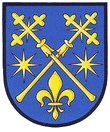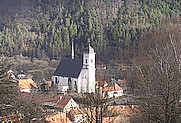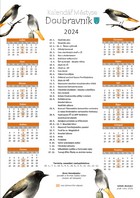Anglický čtenář v Doubravníku [4]
20.03.2005
LINUX
- nosné téma další lekce. | |  |
Reading 3Linux for Common User at Doubravník 1
Well, you're probably one who likes to
work on computer, you've heard about the Linux
operating system, and you'd like to know more about it? You might even be interested in using it yourself? If so, this information is just for you. You may think about it and take your decisions. Moreover, this information is written in an adapted English in order to render it accessible for common user with limited knowledge of English. So, you will have an opportunity to read something about this operating system. You are recommended to consult the dictionary very often and to learn by heart all the new world and expressions. Special attention will be paid to the expression written in italic characters (= psaných kursívou).
Beginning to speak about this topic we meet a lot of questions and opinions, like following: What exactly is Linux? What do we mean when we say ″open source″? You have heard that Linux is difficult to use. Is that true? Linux is great [ zde = skvělý ] because it runs on very old hardware! Linux is great because it never crashes! Linux is great because it's free! What exactly is a ″distribution″? Which is the best one? Linux is great because it is
virus-proof! Do I have to learn how to compile software in order to can use Linux? I don't want to work from the
command line! Will I have to learn a whole new set of commands if I use Linux? What are the man pages [výraz používaný mezi uživateli Linuxu znamená manual pages ] exactly an how to use them? You've heard that Linux users prefer to use TeX - what's that? By the way, which is the best word processor for Linux? Is there a Linux version of Microsoft Office? I really can't do without it! [to znamená: nemohu existovat bez textového editoru! ] I hate Bill Gates! Windows is rather one used-up operating systems ! How can I start using Linux as soon as possible? Aren't the reasons for using Linux more to do with politics than anything else? If Linux is free, can it really be good? As a common user, what reasons might I have for not using Linux? Or on the contrary, being a common user, what reasons might I have for using Linux?
What exactly is Linux? What is ″Linux/GNU″? It would be extremely interesting for you to read GNU General Public License ad compare it with License Agreement you can read installing the commercial software. We will surely turn our attention to this problem in some pieces of reading in future. GNU is the project of an operating system similar a UNIX designed by Free Software Foundation, Massachusetts. (The complete English text of the GNU General Public License
can be retrieved for example in the book ″Používáme Linux″, edited by Computer Press a few years ago.) The term ″Linux″ itself is a cause of confusion, as it is often used for several quite different concepts. You have probably heard of Linus Torvalds, who gave his name to Linux. [ Původně toto slovo znamenalo něco jako Linusův Unix) To comprehend well the topic we must turn our attention to the
concept of operating system in general. An operating system is
always a software product comprising
kernel and other software, for example a
user interface, file management utilities, etc. Such a system can take several different forms depending upon its intended purpose, but it could well resemble the
desktop ″Windows″ operating system you are familiar with. The software which complements the Linux kernel in this case is generally that produced by the GNU project, and the correct name for such an operating system is ″Linux/GNU″. However, when they mean ″Linux/GNU″ most people just say ″Linux″ - and so will do we too - following the usual, i.e. incorrect usage. In realty it may also be a complete system comprising the Linux kernel, the remaining GNU software, and applications (such as word processing software). Or speaking about Linux we can have in mind a Linux distribution.
To get rid of confusions we have to say what is open-source software in general, because Linux is one example of this type of software
items. What is ″
open source″? Each program is in fact a long list of commands which are carried out by the computer. In order to make the task of writing these commands easier, the program is written in a
programming language which is easier for a human programmer to understand. A program in this form is generally denominated as ″
source code″. Once the programmer has written the source code, it is converted into a form which the computer can understand, ″
machine code″, also referred to as ″
the binaries″. The process of conversion is called ″
compiling″. No human mind, neither the mind of programmers is able to understand ″source code″. In order to make changes to a program, they must change the source code written by the original programmer, and then
recompile it to produce new machine code. Companies selling or distributing commercial software do not usually want users to be able [ Zkracování pomocí vazby infinitivu s akusativem při dvou podmětech si vynucuje trpný rod slovesa - v češtině bychom řekli nechtějí, aby oni mohli) to make changes to it, so they do not normally provide the source code along with the program. Consequently, users are not normally able to modify the program in any way. If the author, seller or distributor of a program also
provides the source code of the program, the software is described as ″open source″. The source code is accompanied by a license describing what the user is allowed to do with the code. A program supplied without the source code is called ″closed-source″. Although the fact of providing of software with the source code is the main and most important feature of Linux, we must note that not all open-source software is for Linux. There are programs, which, being open-source but [logický podmět ! ] only runs on Windows. Equally, not all software for the Linux platform is open-source. Software, for [zde: protože] Linux also includes commercial software and
free closed-source software (such as Java), and commercial software with
free demonstration versions (such as the Opera web browser). I personally like this browser very much because of large choice in preferences, but can't use this program properly because of
license agreement [ licenční ujednání ].
Many people are saying that Linux is difficult to use. Is that true? No, decidedly not. Linux is not difficult to use. Most of the time, you won't even be aware that you're using Linux, because most of your work will be done in applications with
user-friendly user interfaces. For example, you might use program OpenOffice.org as your word processor. This program is so similar to Microsoft Word that you may well forget that you're not actually using Word. You are likely
to surf the Internet using Netscape Communicator, Opera or Mozilla, all of which are as easy to use as Microsoft Explorer (which you won't be using in future!). You'll use the Linux application, which looks much the same as WinZip, to
zip and unzip files. Adobe has a version of Acrobat Reader for Linux which is much the same as the Windows version. And so on and so forth. Next time we will deal with the difficulties to be managed using this operating system.
Comment to the text read:
Some comments have been mentioned in the above text. Anyway, take your dictionary and look for the words in italics! This time, I will point to some following words only.
Crash this word has many meanings - třesknout praštet - the thunder (hrom) crashed, rozbít s třesknutím - to crash a glass against wall, the plates crashed to the floor, ale také prorazit, vloupat se to crash into the shop, into the room, nebo narazit the - car crashed into a tree, může také znamenat prodrat se, neoprávněně se někam dostat - and here we are: to crash a program, nebo také dosáhnout úspěch - outsider who crashed all the obstacles.
Podstatné jméno crash: zřícení, havarie, katastrofa, srážka - an airplane crashed, he has been killed in a car crash, stock market crash = krach na burse. Studying this word in a good dictionary we can see that English words are usually more general that Czech ones.
The word kernel is rather strange in English. We hear in it the German word Kern which has the same significance [ smysl, význam ]. The usage of verbs to zip and to unzip is possible exclusively in professional and heavy colloquial English. Reading the text we have met several times the form might - in most cases represents the expression of possibility in past - he migt be ill = možná že byl nemocen.
. . .
pokračování příště




